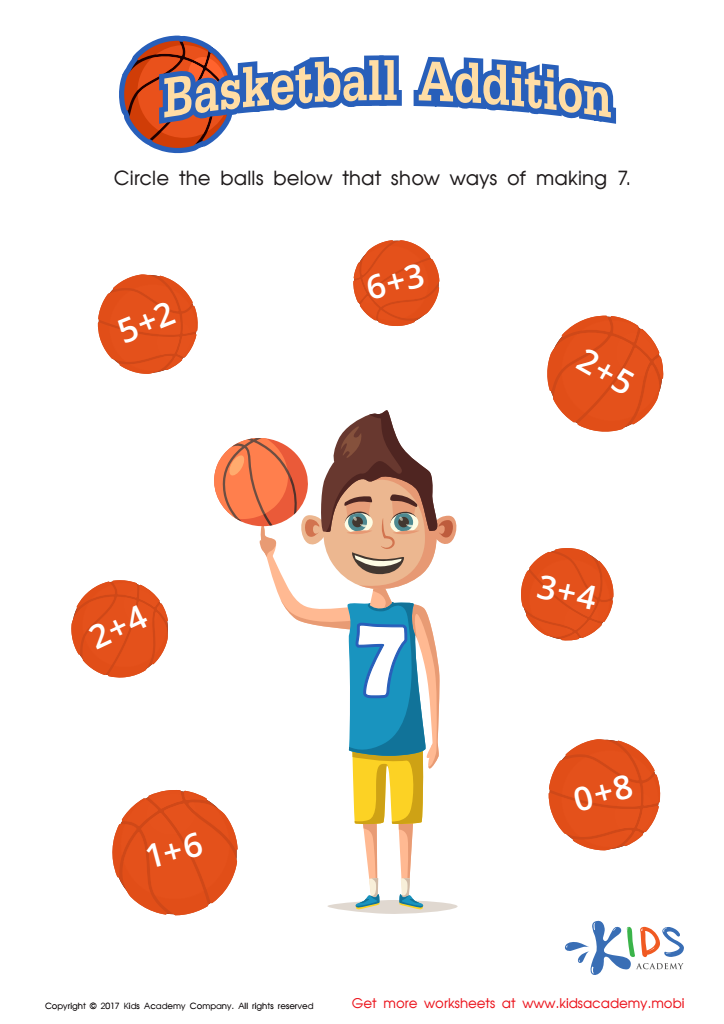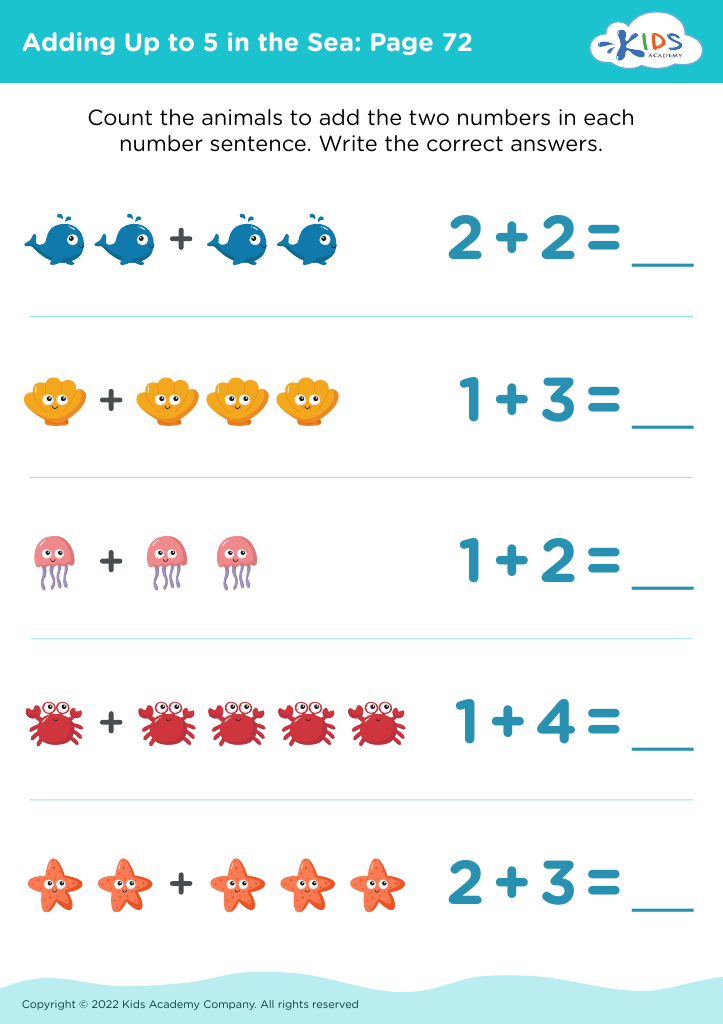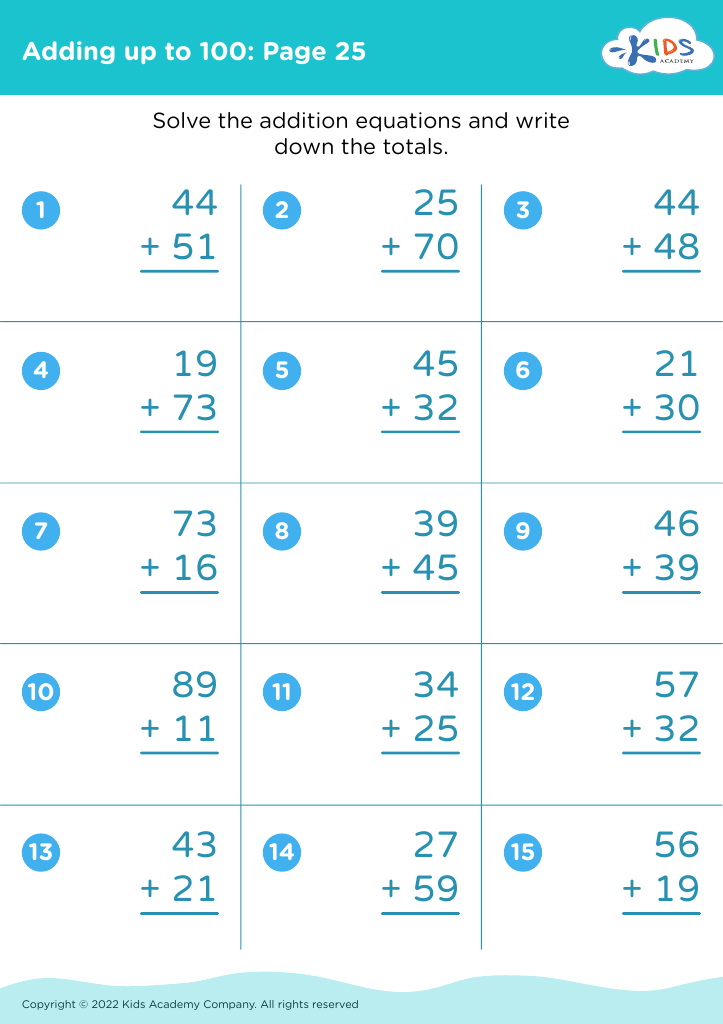Counting skills Math Worksheets for Ages 3-7
448 filtered results
-
From - To
Nurture your child's early math prowess with our Counting Skills Math Worksheets designed for ages 3-7! These engaging and educational resources offer a fun and interactive way to build a solid foundation in counting. Perfect for preschoolers, kindergartners, and early elementary students, our worksheets feature vibrant illustrations, playful exercises, and practical activities. From counting objects to recognizing numbers, these worksheets help young learners grasp essential counting concepts while fostering a love for math. Ideal for both classroom and at-home learning, watch as your child's confidence grows with every completed worksheet. Explore limitless counting adventures today!
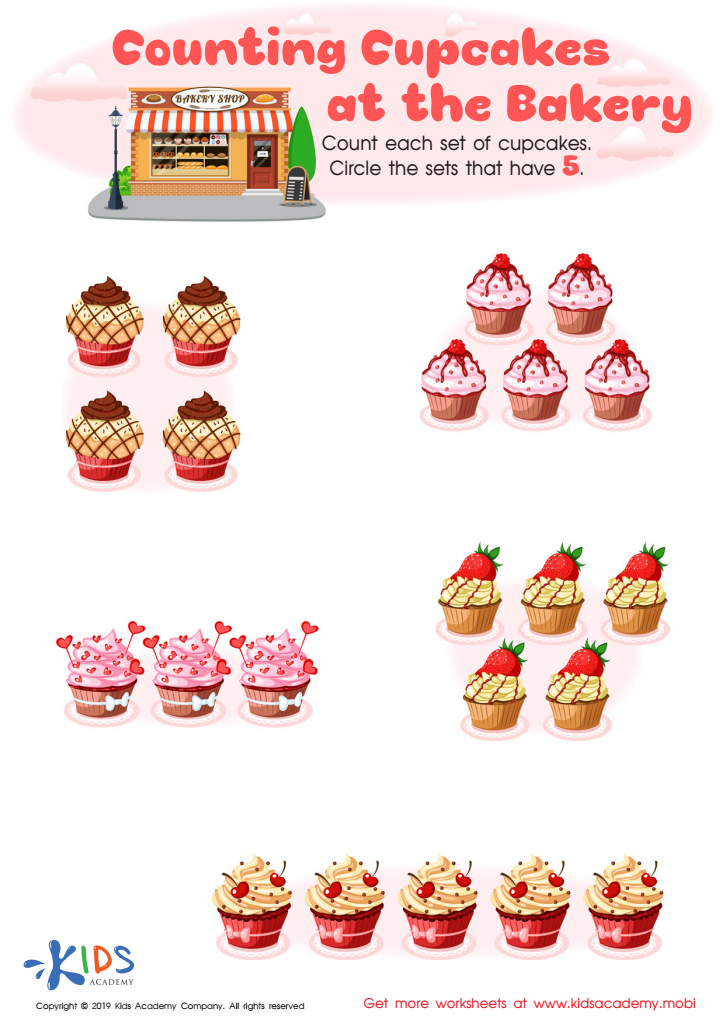

Counting Cupcakes Worksheet
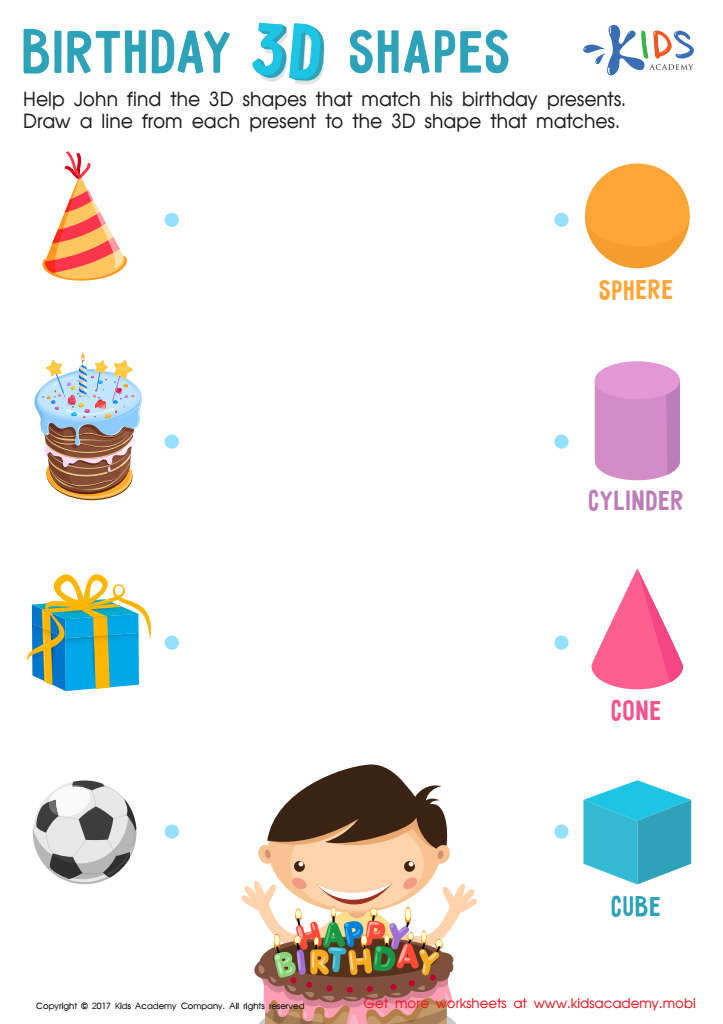

Birthday 3D Shapes Worksheet
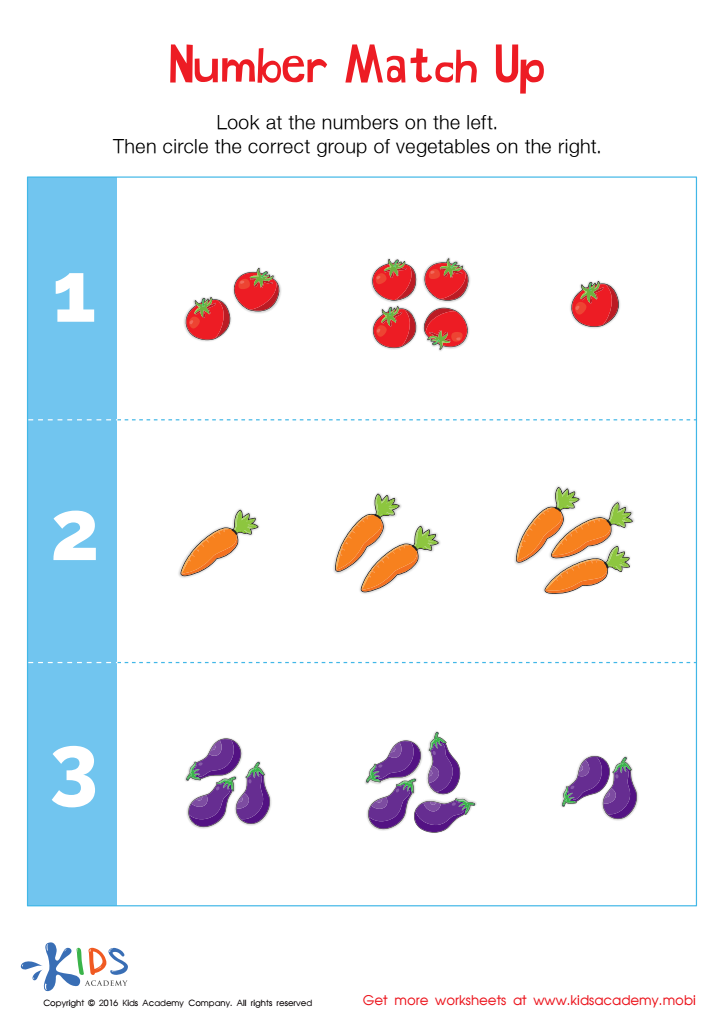

Number Match Up Worksheet
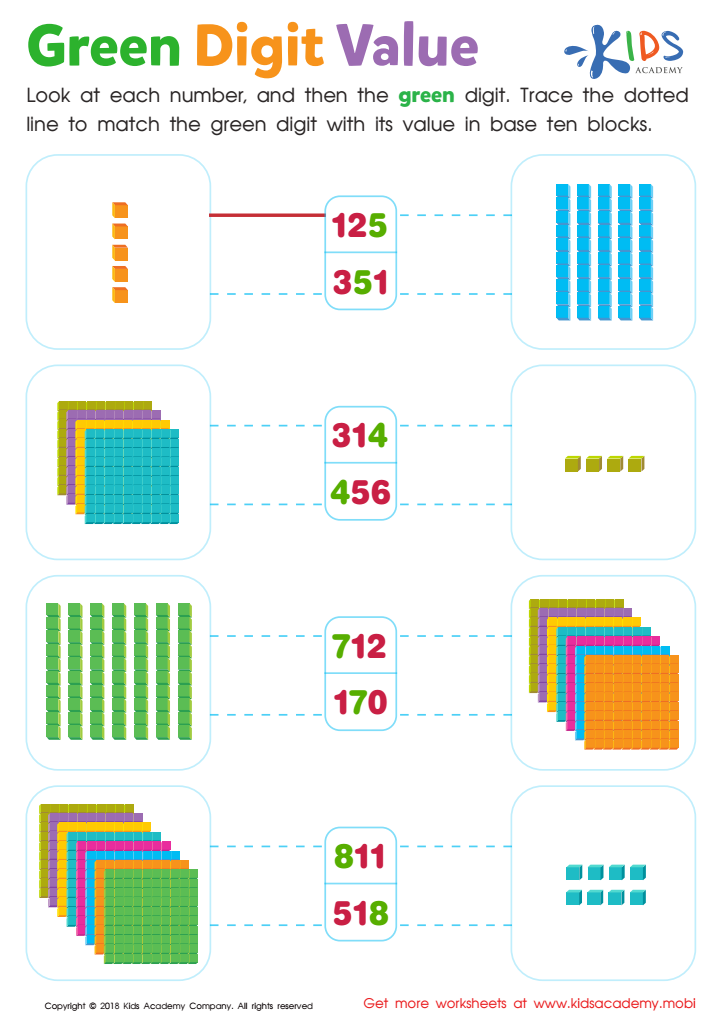

Green Digit Value Worksheet
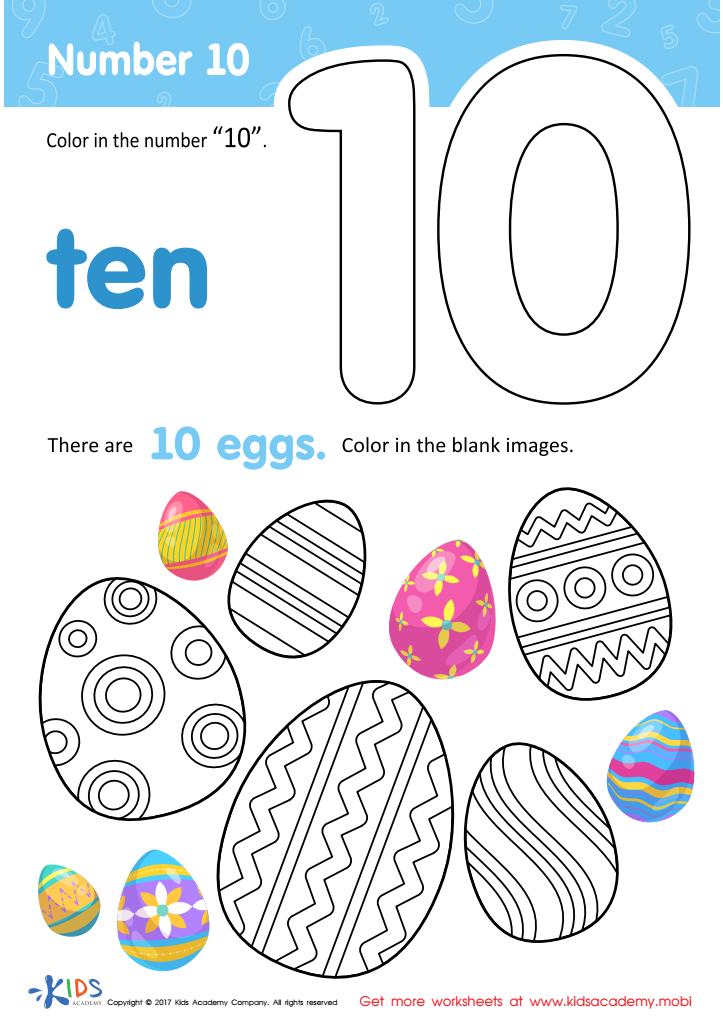

Number 10 Printable
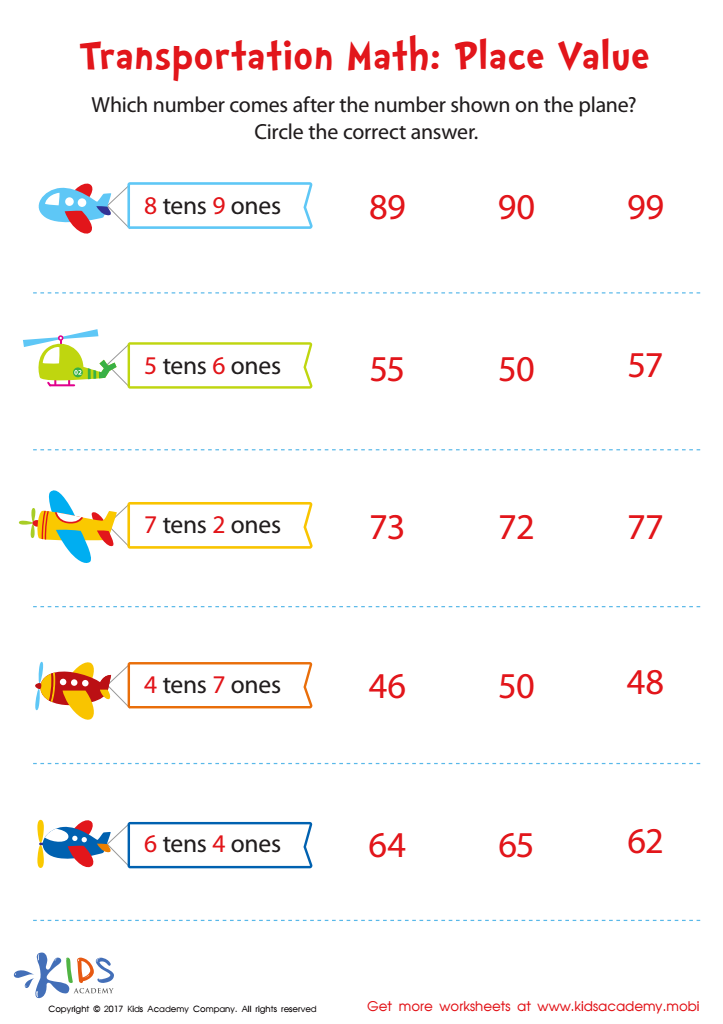

Transportation Math Printable
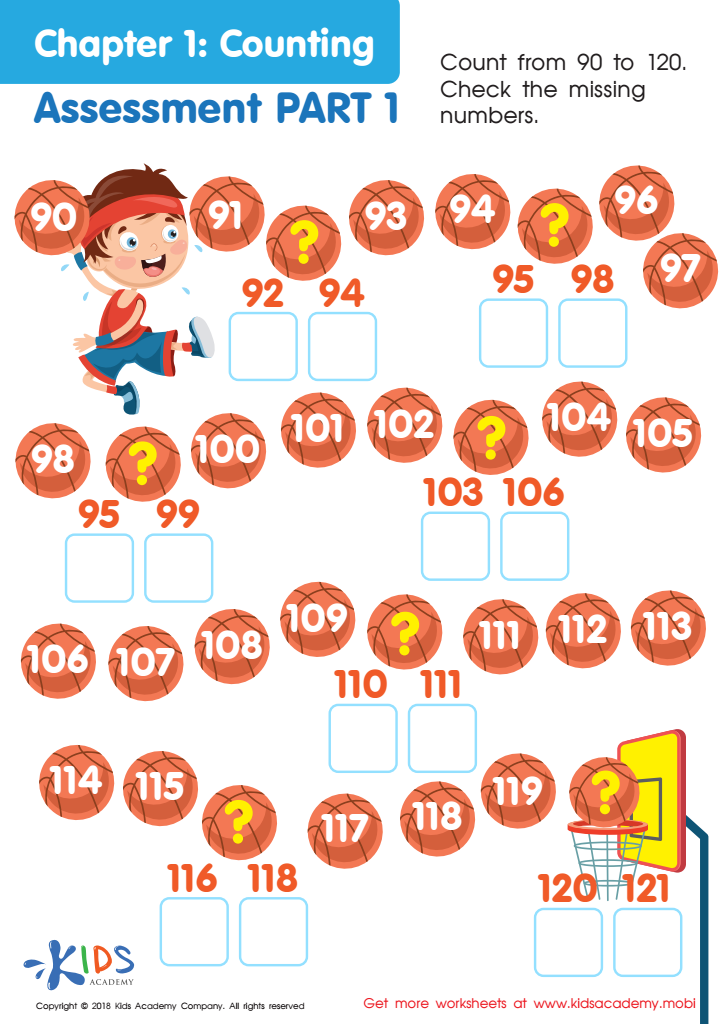

Counting Past 1: Assessment 1 Worksheet
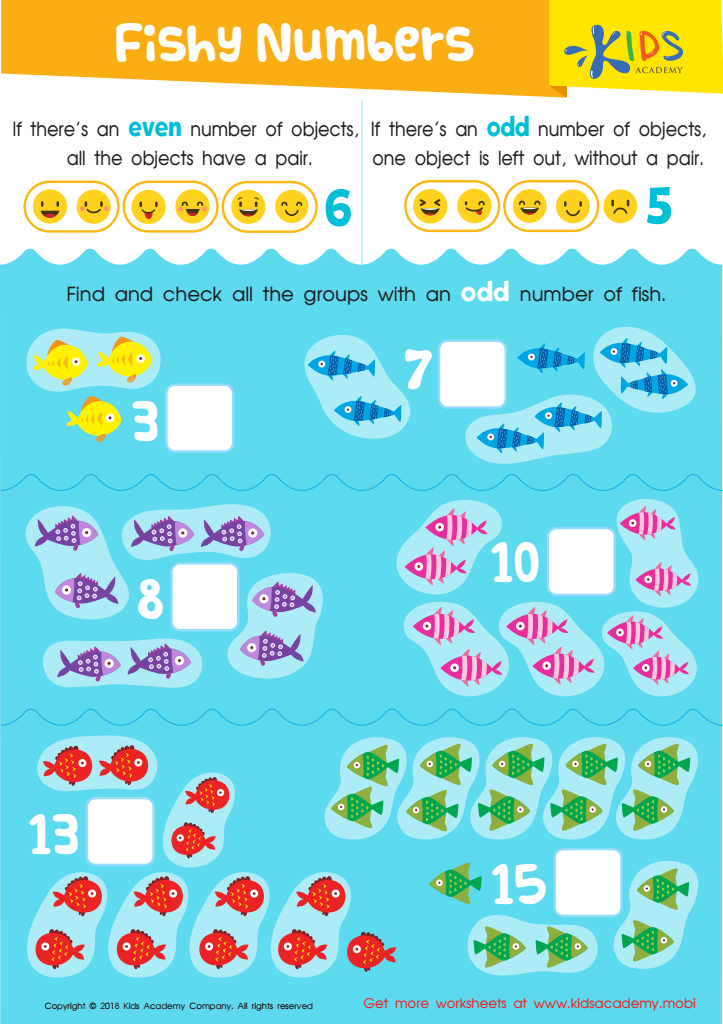

Fishy Numbers Worksheet
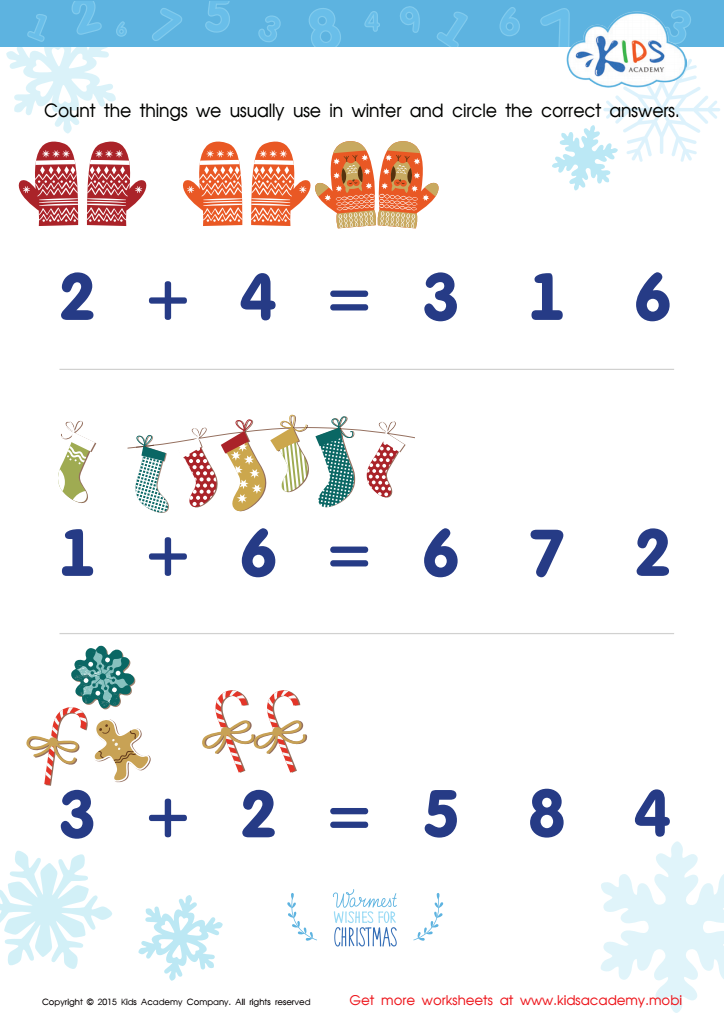

Count Winter Things Worksheet
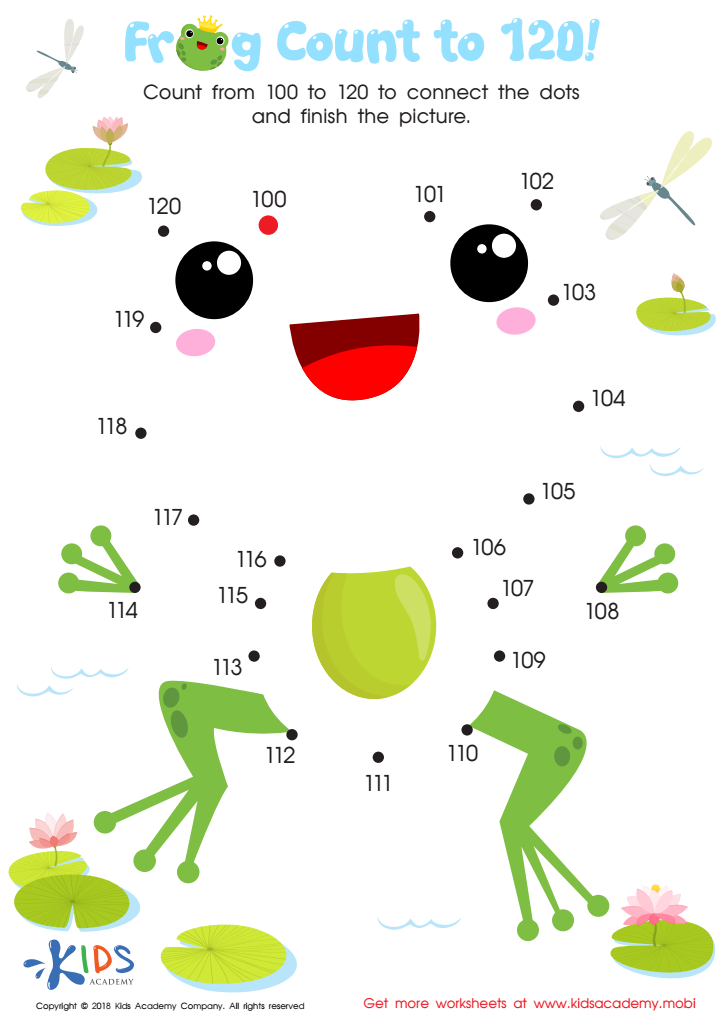

Frog Count to 120 Worksheet
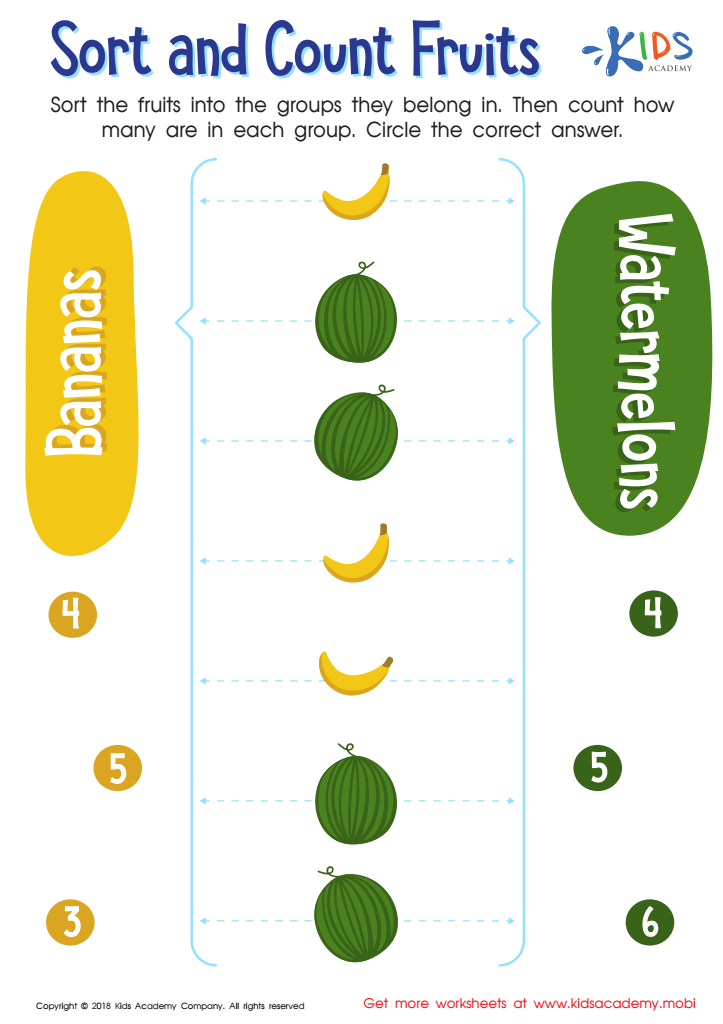

Sort and Count Fruits Worksheet
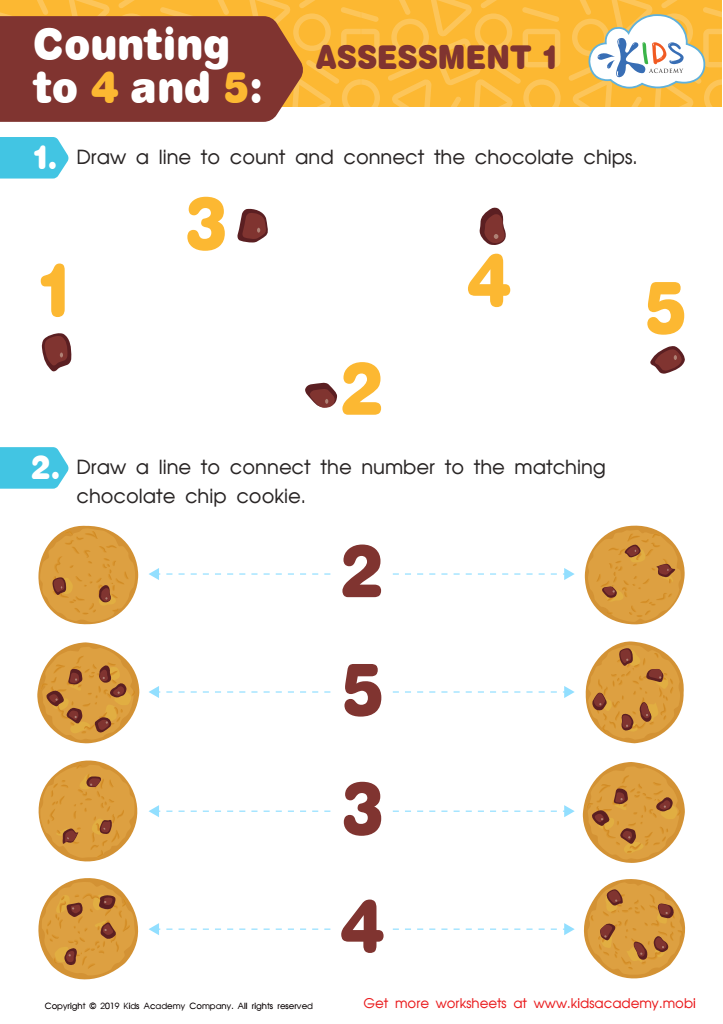

Counting to 4 and 5: Assessment 1 Worksheet
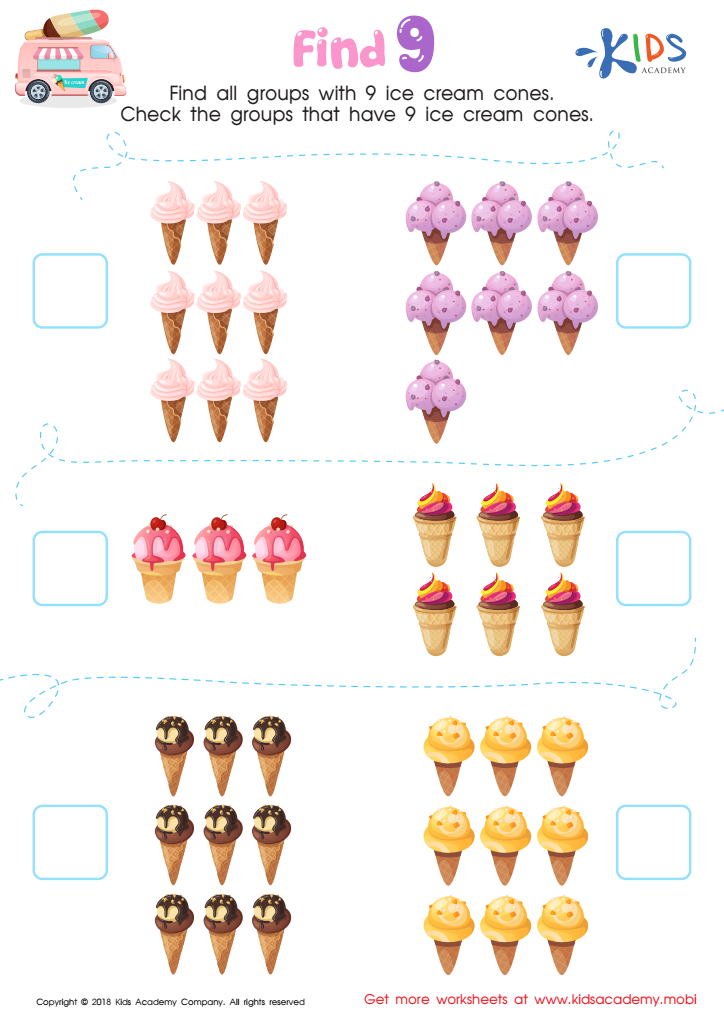

Find 9 Worksheet
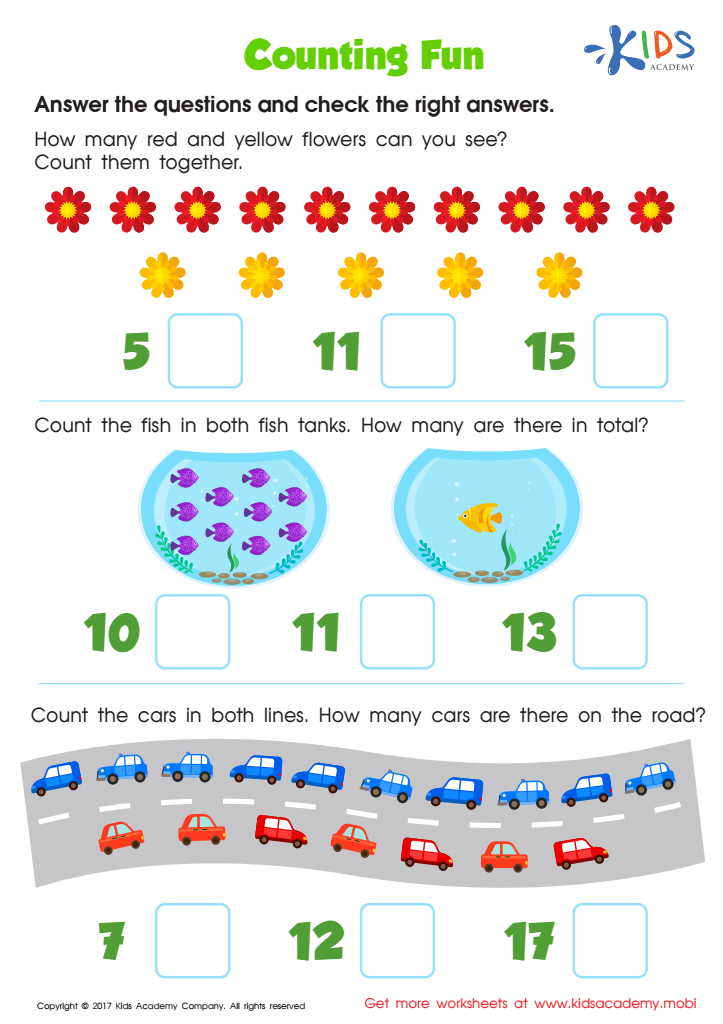

Counting Fun Worksheet
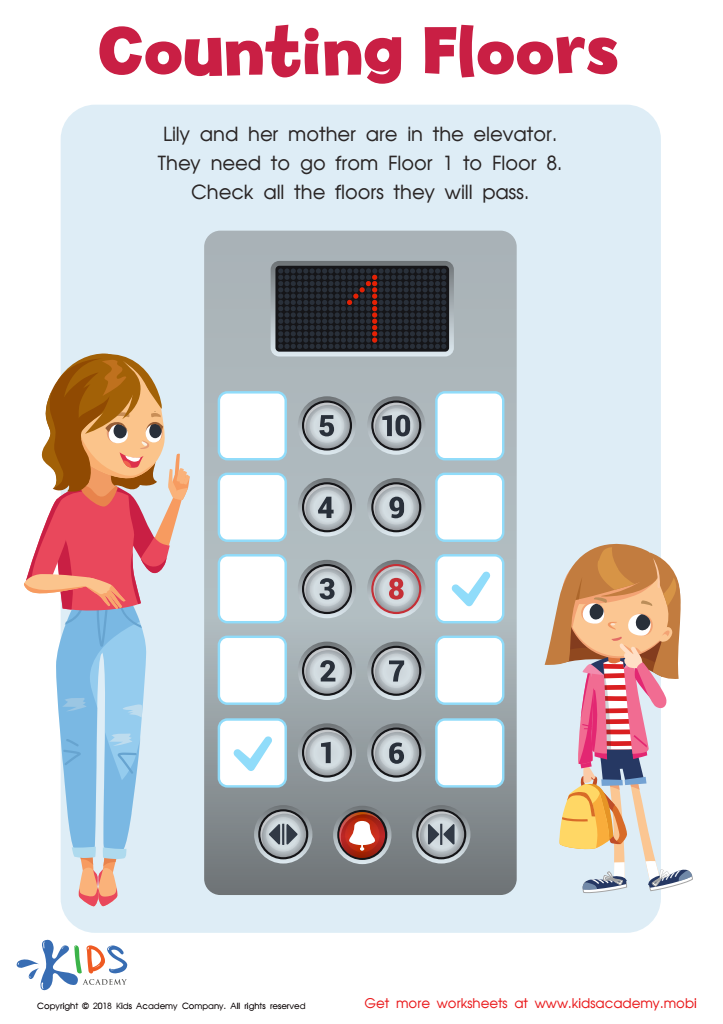

Counting Floors Worksheet
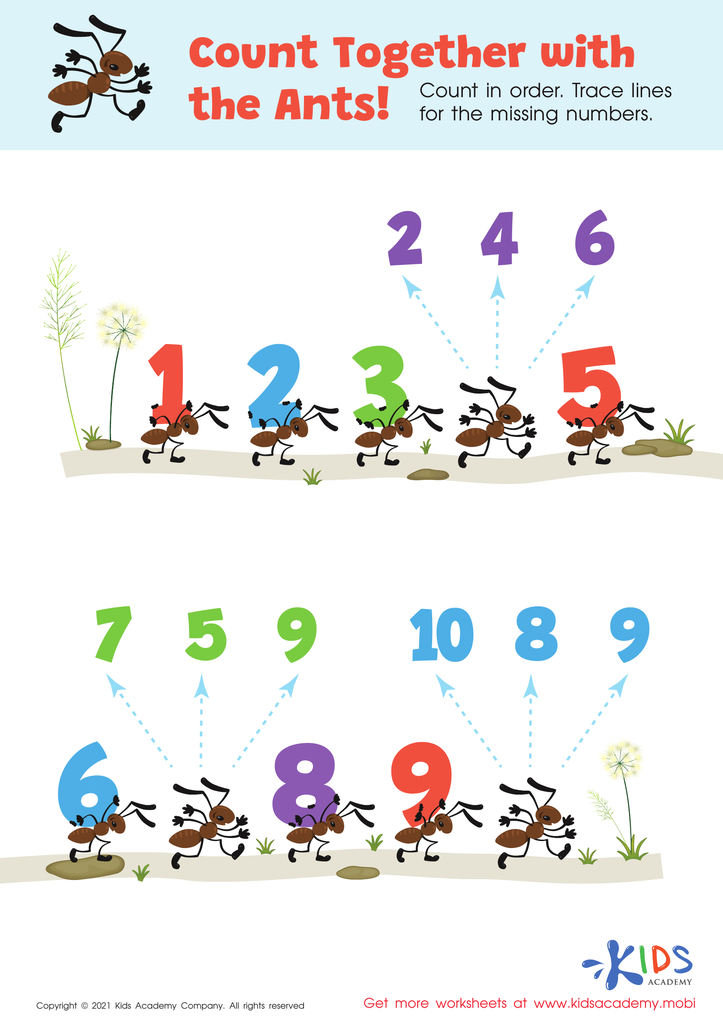

Count Together with the Ants Worksheet
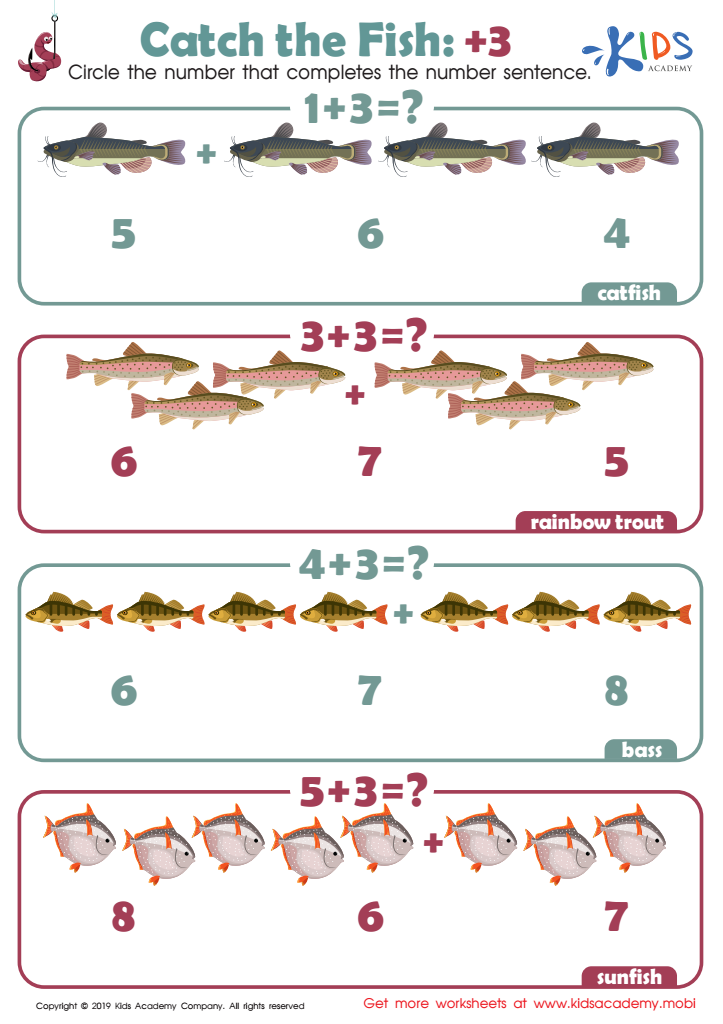

Catch the Fish: +3 Worksheet
Counting skills in children aged 3-7 are fundamental for their future mathematical development and overall cognitive growth. Firstly, counting is a building block for more complex mathematical concepts like addition, subtraction, and problem-solving, laying the groundwork for academic success in later years. Mastery in counting enhances numerical literacy, enabling children to understand the value of numbers, compare quantities, and work with money.
Secondly, counting promotes logical reasoning and critical thinking. As children learn to count objects and grasp number sequences, they develop better memory and attention to detail. These cognitive skills translate to improved performance across all subjects, including reading and science.
Socially, counting activities often involve group participation, fostering teamwork and communication skills. For instance, counting games or group tasks help children learn to cooperate, share, and listen to others, essential skills for both school and life.
Additionally, early proficiency in counting can boost a child's confidence and resilience. When children successfully count objects or numbers, they experience a sense of accomplishment, motivating them to tackle more challenging tasks.
In essence, solid counting skills are not just about numbers—they pave the way for holistic educational and personal development. Parents and teachers who invest in building these skills are setting children up for a brighter, more successful future.

 Assign to My Students
Assign to My Students
